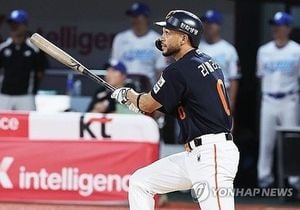Javier Aguirre, the manager of the Mexican national soccer team, faced incredibly alarming circumstances during the recent CONCACAF Nations League match against Honduras, where he was struck on the head by a beer can thrown from the stands. The incident unfolded right after Aguirre's team succumbed to a 2-0 defeat at the General Francisco Morazán Stadium in San Pedro Sula, Honduras. This occurrence is raising eyebrows and concern about the safety and decorum at sporting events.
Videos circulating on social media captured Aguirre walking along the pitch after the final whistle, aiming to shake hands with his counterpart, Reinaldo Rueda. Suddenly, objects were hurled toward him from the stands, culminating with one of the cans hitting him directly on the head. The impact released the contents of the can, causing blood to flow down his face. Medical staff quickly rushed to his aid, applying gauze to the gash on his scalp as he continued to navigate the pitch, flanked by security personnel holding riot shields.
Despite the dramatic nature of the incident, Aguirre remarkably downplayed the attack, stating it was “nothing,” and graciously paid tribute to the Honduran team for their superior performance. “They deserved to win, they were the best team,” he commented. His resilience and refusal to let the incident overshadow the game speak volumes about his character, but many are left shaken by the volatility witnessed on the field.
The Honduran Football Federation (FFH) has expressed its disapproval of the actions perpetrated by some fans, labeling such behavior as absolutely reprehensible. Yet, they also suggested Aguirre may have sparked the crowd’s outrage, indicating the complexity of the situation. According to their statement, the FFH firmly asserted, "The actions of this small group of fans do not represent the respectful behavior of our fans as a whole." Although they condemned the assault on Aguirre, they aimed to contextualize it within broader fan behavior.
Following the altercation, CONCACAF released its own condemnation, emphasizing the need for safety during sporting events. They have forwarded the incident to their Disciplinary Commission for examination. Their statement firmly reminded stakeholders, "The safety of teams and fans is prioritized, and violent behavior has no place within football." This statement aims to reinforce the message to maintain order both on and off the field, thereby ensuring the sport remains enjoyable and free from harassment.
The Mexican soccer federation also echoed these sentiments. They affirmed their commitment to nurturing a safe environment for players, coaches, and fans alike and called on all members — including institutions, media personnel, and fans — to play their roles effectively. Following the troubling events, Aguirre and his team now face the challenge of overcoming their 2-0 deficit to advance to the Nations League semifinals when they host Honduras for the return leg.
Incidents such as these raise significant questions about crowd control and the responsibilities of sports organizations to protect players and staff during matches. Such violence must be addressed with effective policies and measures so they can make stadiums and sporting events safe havens rather than venues of aggression. Despite Aguirre’s composed response, the reality remains—he endured an experience no coach or player should have to face at their workplace. How sports organizations will respond to such transgressions will surely be closely monitored by fans and officials alike, as the echoes of this incident remain fresh.



